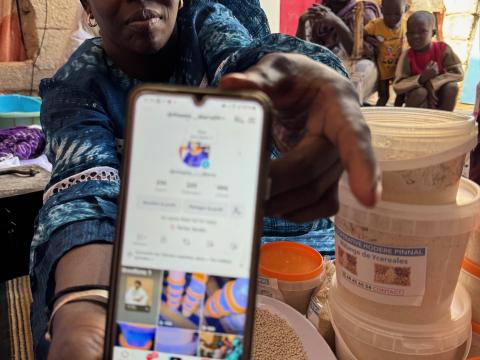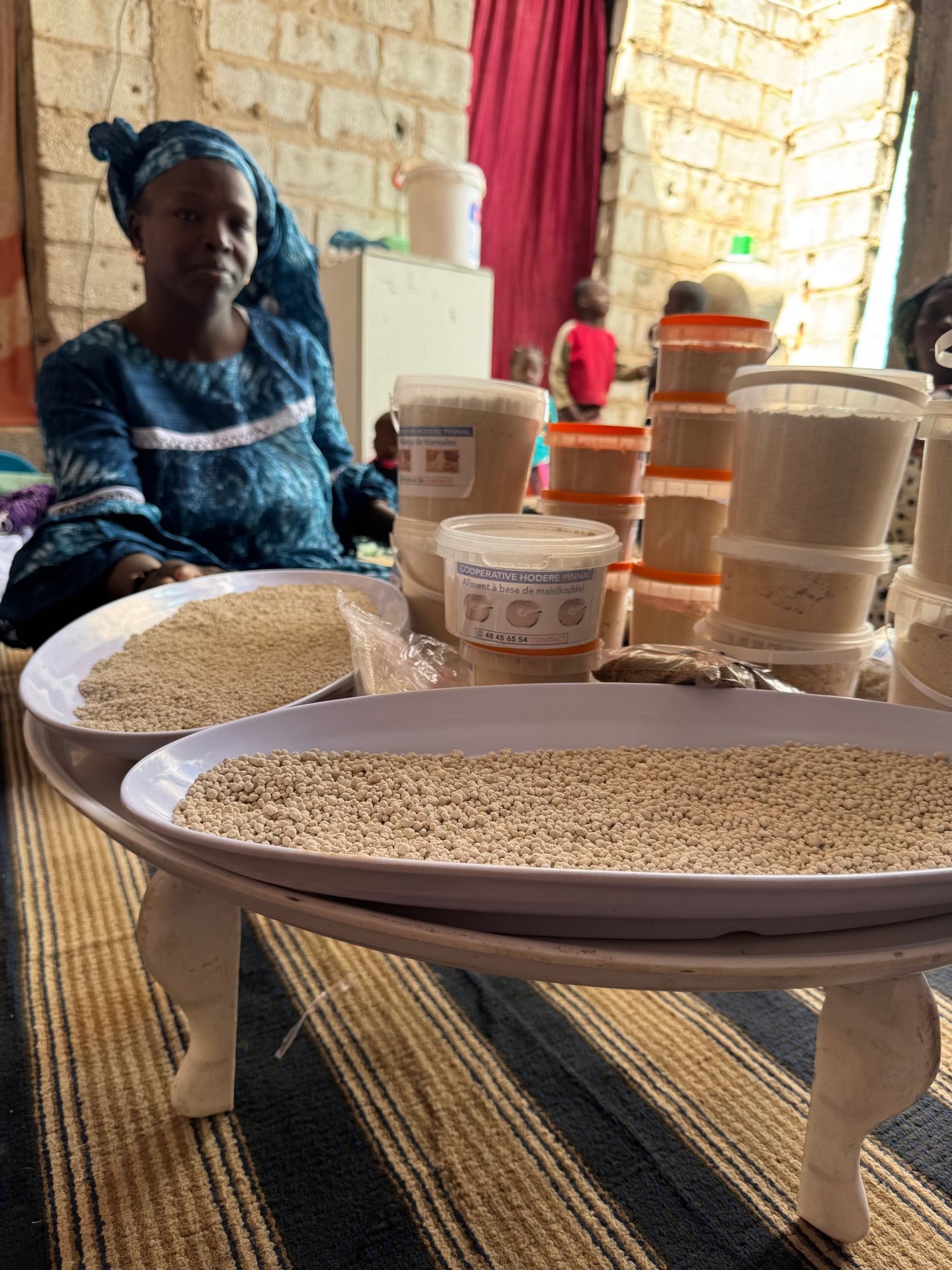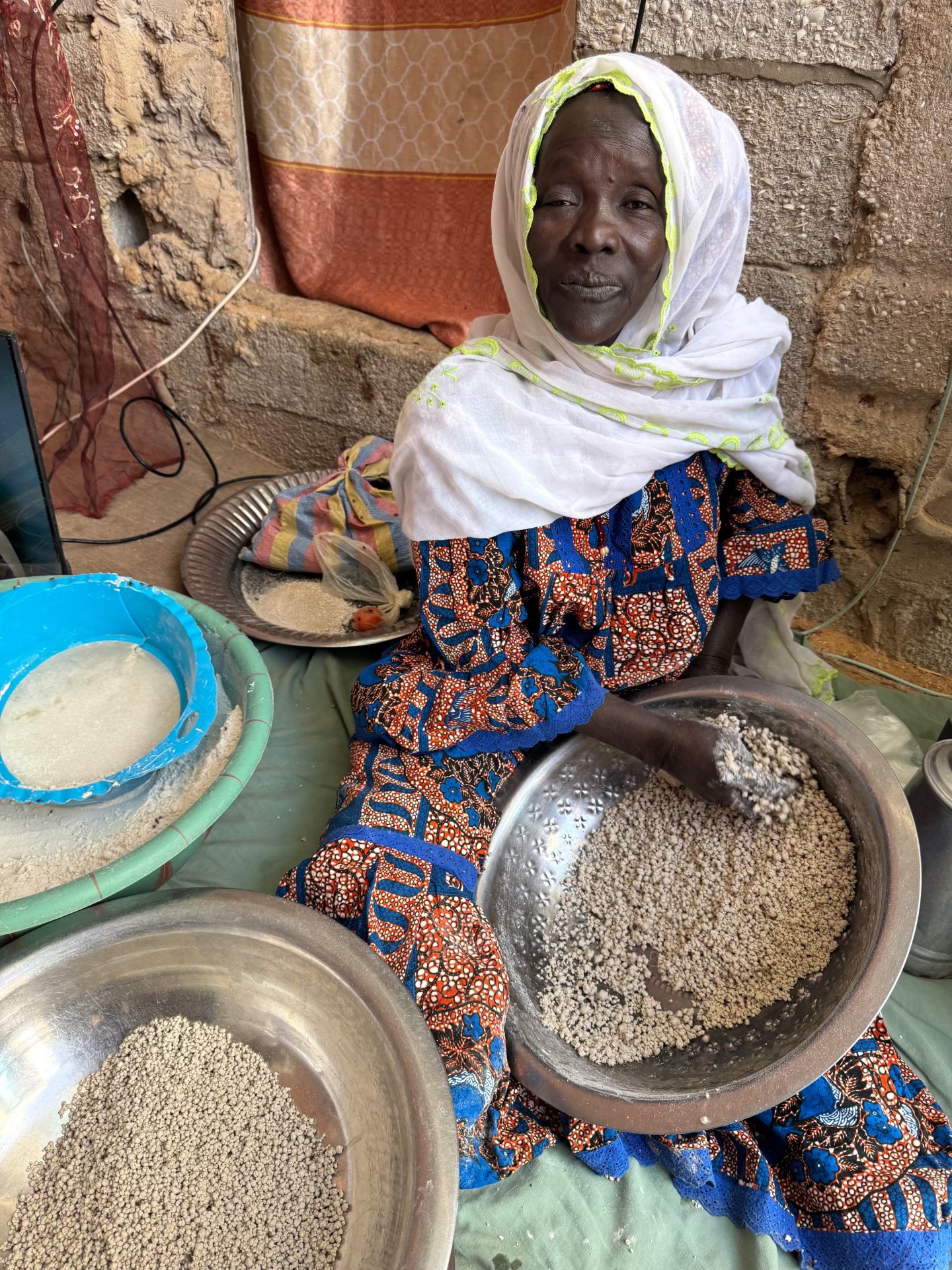In Nouakchott, a Women's Cooperative Is Turning Grains into Opportunity

In the heart of Nouakchott, the Hodere Pinnal cooperative stands as a powerful example of women’s economic empowerment. Made up of 20 women, the group transforms local grains—millet, rice, maize, beans, and watermelon seeds—into a nutritious powdered mix. This product, commonly used in soups, stews, or blended with milk, is in high demand, particularly during the month of Ramadan, when sales can reach up to 20 jars a day.
“Our work allows us to feed, clothe, and educate our children,” says Aïssata Diarra, president of the cooperative.

With support from World Vision Mauritania, Hodere Pinnal has adopted a solidarity-based economic model. The members have established a savings group, where each woman contributes 50 MRU per week. These pooled resources are used to purchase raw materials, launch new income-generating activities—such as selling fabrics for traditional dresses—and maintain a community urban garden. Located in the middle of the city, the garden provides fresh cabbage, chili peppers, and lettuce, helping to strengthen local food security.
The cooperative has also embraced digital tools to scale up its impact. While initial sales were mostly generated through word of mouth, visibility grew dramatically when Aïssata began sharing short videos on TikTok. By showcasing their products and including her phone number, she has significantly expanded their customer base and boosted orders.
“I want to thank World Vision Mauritania. Their training and encouragement helped us turn our efforts into a real source of income. Today, we are supporting our families and inspiring other women to start their own businesses,” Aïssata says.

By investing inwomen’s entrepreneurship, World Vision Mauritania is helping to strengthen the economic foundations of vulnerable families and build more resilient communities. The success of Hodere Pinnal is a clear demonstration that when women are supported and empowered, the benefits ripple throughout society.